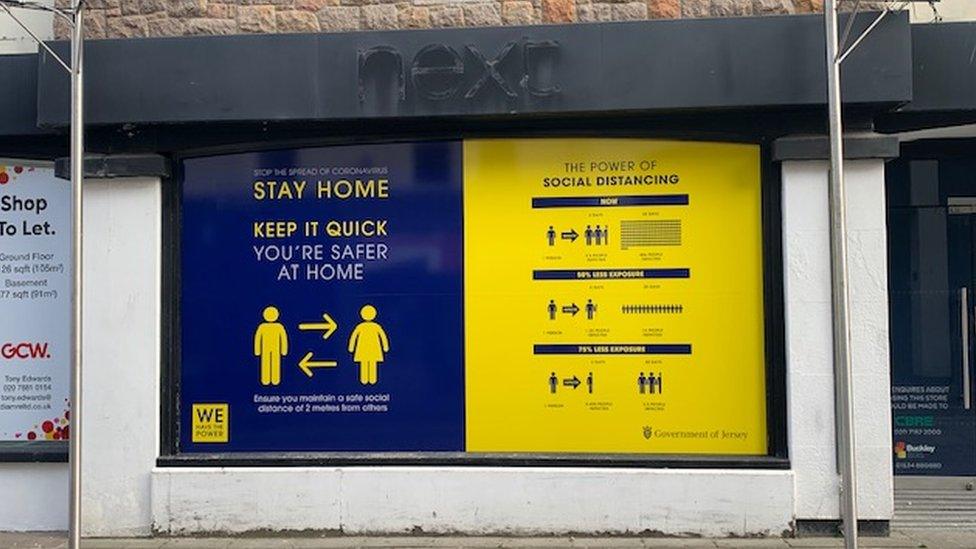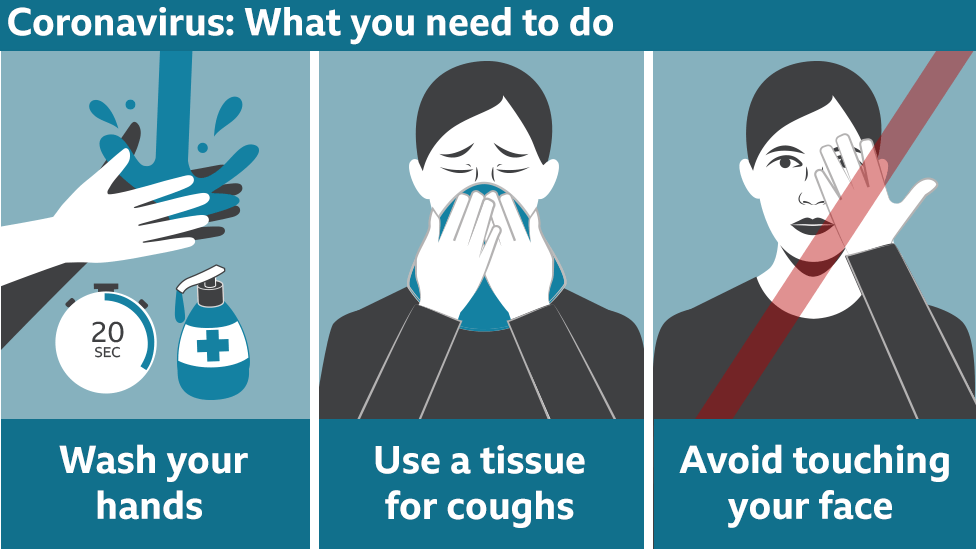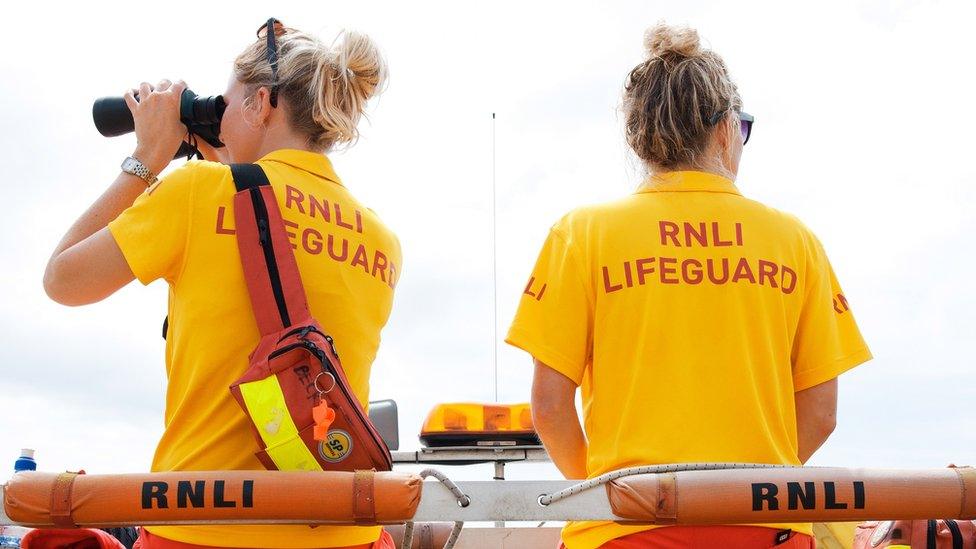Coronavirus: Home visits in Jersey discouraged as ban lifted
- Published

Fines of up to £1,000 for breaching social distancing rules when in public can be issued by police.
Visiting another person's home in Jersey is being strongly discouraged by the government, although it is no longer illegal.
From midnight there will be no bans on visits inside private homes, gardens or workplaces.
However, people who "gather" in public could be fined up to £1,000 if they "wilfully" ignore police instructions to keep 2m apart.
Officers can issue fines to anyone refusing to comply.
The new law was subject to some controversy in the States Assembly, with some arguing it contradicted Government of Jersey guidance.
The government said that their guidance - that people should remain distanced - is unchanged and people should "think twice" before allowing anyone into their homes.
'No contradiction'
Planning Minister John Young said his government were "increasing the risks to the majority of the community" by moving away from social distancing in homes.
Deputy Young said: "We've stuck to that until today, and now we're asked to choose to abandon it."
Mr Young claimed the plan had been presented "with a gun at the head" of members, after being told rejecting it could force the government to remove restrictions entirely or continue with current rules.
Speaking in favour, Health Minister Richard Renouf said there was "no contradiction in our guidance" and the government's messaging remained consistent.
Deputy Renouf said: "There will always be dangers in households gathering together.
"We will ask people to exercise care in who they mix with.
"For the time being I've thought it appropriate not to continue that infringement on people's civil liberties."
Adults in charge of minors can face a fine if they "wilfully fail" to take "reasonably practicable steps" to stop the child from breaking social distancing, the law lays out.
Children with no supervision who are old enough to "receive and understand a direction" can be held responsible.
Those who accidently come too close when passing another person will be exempt.

THE R NUMBER: What it means and why it matters
GLOBAL SPREAD: Tracking the pandemic
RECOVERY: How long does it take to get better?
A SIMPLE GUIDE: What are the symptoms?
VIDEO: The 20-second hand wash


- Published22 May 2020

- Published21 May 2020

- Published20 May 2020
